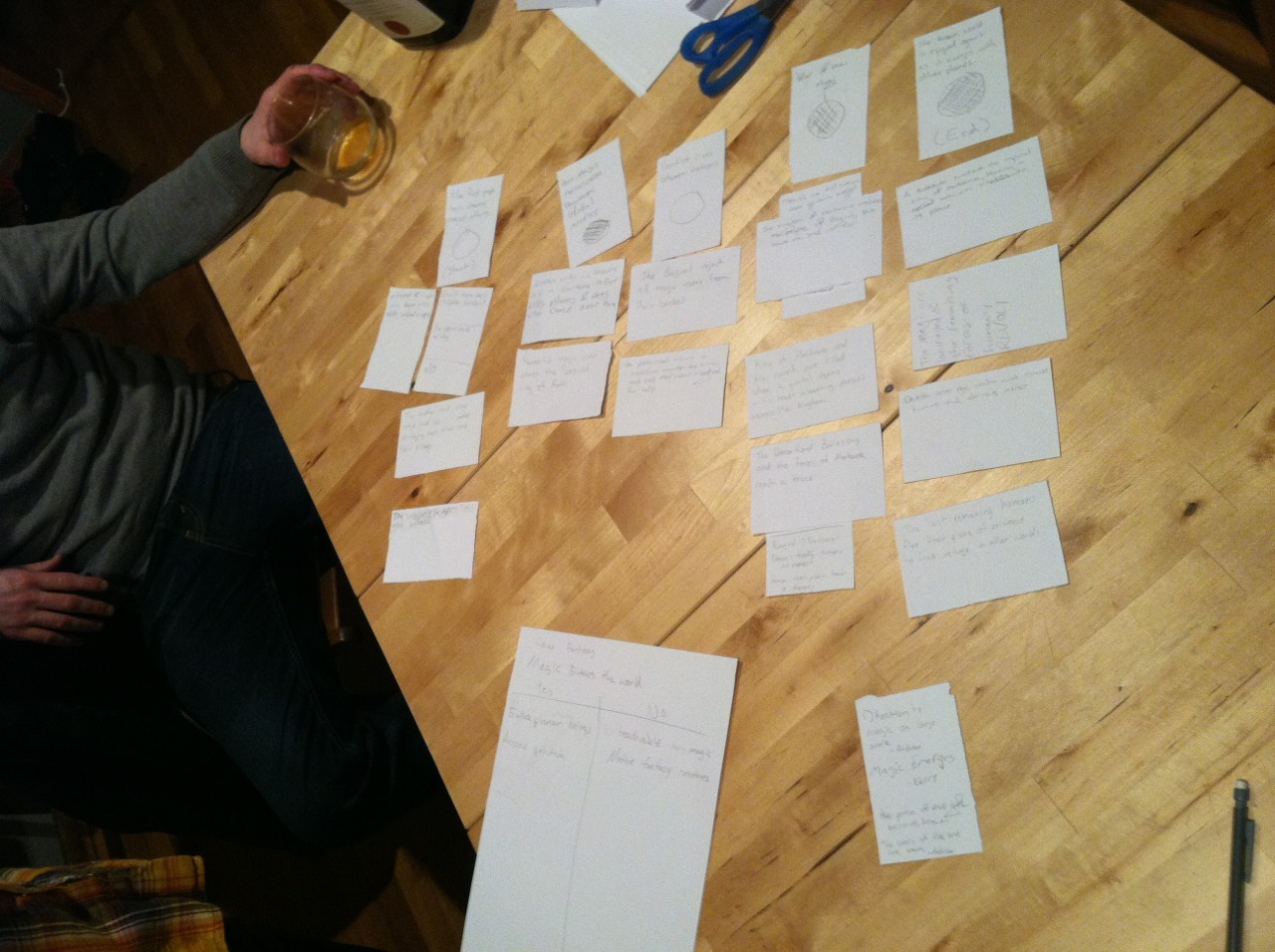You begin the game by making a statement about the situation at hand. This is going to be the focus of the entire game. This is statement should be larger than a singular event but more of a paradigm shift. Things like, "aliens contact humanity" or "humanity mutates into demi-humans." We went with, "magic enters the world." From there, you make a list of things that are in the setting and things that are banned from the setting. One of things we made mandatory is what we dubbed "arcane pollution", which is that every use of magic saps the land of life. Things we banned included native fantasy creatures and wizard schools.
From there, you pick a starting period and ending period and decide if it is "light" or "dark". These two periods bookend the entirety of the game. Nothing that happens can pre-date the starting period and there is no conceivable future beyond the ending period. During each round, one player takes the role of the lens. That person writes a statement of focus, which all actions have to engage with in some way. The lens may make two actions and add either a new period and event or add a new event and a scene and everyone else may make one action. Periods account for decades or hundreds of years, events happen within periods and may represent stretches of time, and scenes attempt to answer questions through roleplaying.
While that may sound fairly simple, it took our group a little time to get into the rhythm of the game. Writing those statements, creating the milieu, as well as the starting and ending periods is fairly difficult. At the beginning, it felt very much not like a game and more akin to the process of sketching out the basic architecture for your game world with a few friends. Once we got into the actual game of creating periods, placing events, and playing out scenes, the game came alive.
 |
| This is what a finished game looks like, whiskey not included. |
Our game ended with a sinkhole swallowing the capitol city of Merkavia and leaving a portal between worlds in its wake. The final events were the emergence of deities smiting both demons and humans alike while a precious few escaped to the next plane of existence.
I highly, highly recommend you snag this game. The rulebook is a scant 81 pages but there is some serious fun to be had as you and your friends create a world, its Armageddon and throw the whole thing into the waste basket at the end of the night.

No comments:
Post a Comment